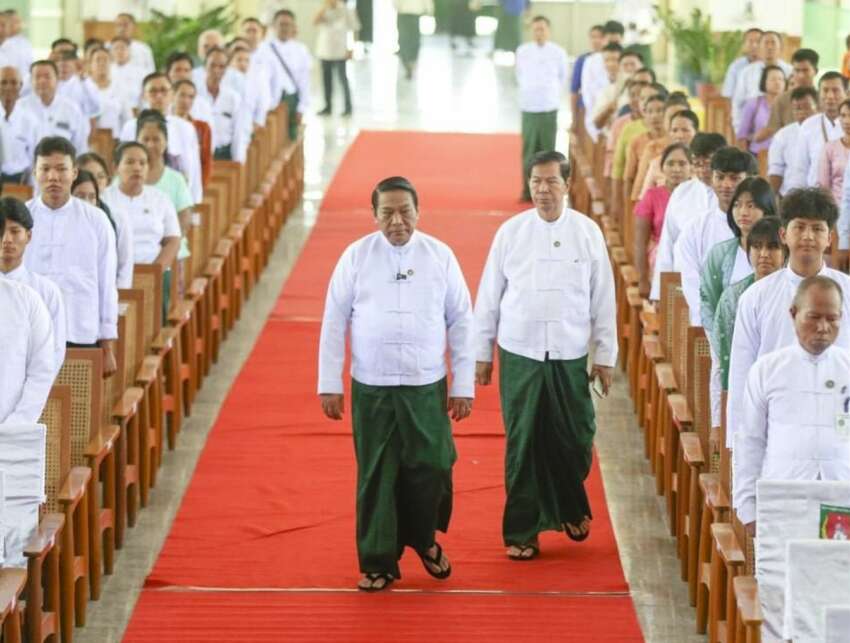
The Union Solidarity and Development Party (USDP), operating under the military council, has announced its intention to contest all constituencies in the upcoming December general election and has no plans to form a coalition government with other political parties, according to a source from the party’s secretariat office. During recent central executive committee meetings, the party discussed election strategies and while maintaining good relations with allied political parties that supported the military coup, they decided to compete independently in the elections. The party has determined it will seek to win as many constituencies as possible without forming any alliances.
The USDP has already arranged campaign funding for the upcoming election and has specifically designated constituencies where retired and current military officers will contest. Party leaders are confident of victory, particularly given that the National League for Democracy (NLD) party will not be allowed to participate in the election. They have also made it clear that they have no intention of sharing important positions, including the parliamentary speaker role, with other parties. The party’s election strategy demonstrates their intention to maintain complete control over both the executive and legislative branches of government, without any power-sharing arrangements with other political entities.
A prominent USDP figure, Bu Let Hla Swe, stated through social media that after forming the new government, they will work with the military to decisively suppress ethnic armed organizations such as the AA and MNDAA, considering this as one of their primary responsibilities. The party’s electoral strategies and future plans could have significant implications for the country’s democratic transition path. The USDP’s approach to the upcoming election and their stated intentions regarding governance and military operations against ethnic armed groups reflect their alignment with the military council’s policies, while raising concerns about the prospects for inclusive democratic governance and peaceful resolution of conflicts with ethnic armed organizations.



